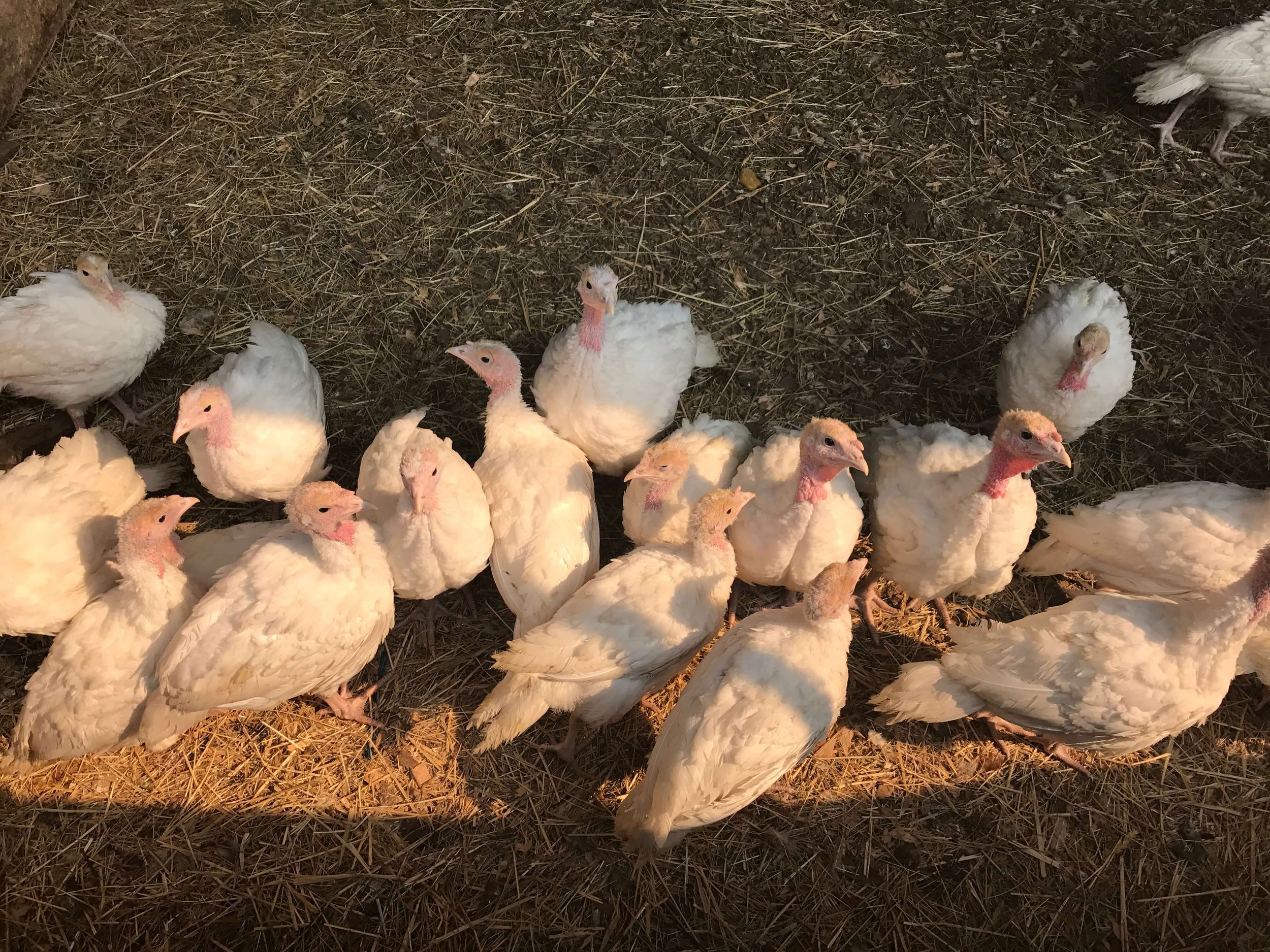Sky Valley Farm eggs
“When they are able to forage for vegetables and grass, the health of the hen is really far superior.”
It makes perfect sense that hens that grow up in heavenly places would produce heavenly eggs, ones with perky whites, deep orange yolks, and rich flavor. Sky Valley Farm, a family-run farm 40 miles outside of Seattle, is just such a place.
David Rappuhn, the fourth generation on this small family farm, started delivering pasture-raised chicken eggs to Grand Central back in 2014. “We needed year-round egg supplies from someone who truly had their chickens on pasture,” remembers Laura Heinlein, Seattle cuisine manager. “To be able to find a producer on this side of the mountains who could actually sustain a pretty good volume of eggs is not an easy thing to find.”
Sky Valley’s laying flock, which moves every fourth day to fresh pasture spring through fall, has since doubled to more than 2,500 birds, providing steady business for the farm and delicious organic eggs for Grand Central’s breakfast sandwiches.
The Rappuhns on their farm in Startup, Wash. From left: Kaitlyn, David, Cindy, and Brent.
Now they deliver up to 170 dozen eggs every week to the bakery’s central kitchen in Seattle, says David, who runs the farm with his wife, Kaitlyn, and parents, Cindy and Brent, in the small town of Startup.
Since that first egg delivery eight years ago, benefits for farm and bakery have compounded. Laura heads to the farm every year and invites other co-workers who often make the trip as well, so they can better understand how these rich-tasting pasture-raised eggs come to be. Talking with the kitchen staff, says David, helps the farm plan for future seasons.
“The most important thing to us,” David says, “is that you guys take the time to really visit the farm.”
“Chickens can eat up to 25 percent of their diet as grass or vegetables, which leads to darker yolks and a richer tasting egg.”
Vegetable trimmings from Grand Central go to young birds in summer, which acclimates them to eating grass when on pasture as adults.
In the shaky first months of the COVID-19 pandemic, the connection helped steady both businesses. The farm was a reliable source of eggs, including packaged dozens for resale to customers, and the bakery provided regular income.
When Grand Central streamlined its menu, Heinlein started purchasing Sky Valley’s meat chickens to roast whole for soup, stocks, and chicken salad.
Local pastured chicken is more expensive, “but we’re willing to pay for a better product,” she says.
David adds, “for a small farm like us, it’s a tremendous help because we don’t have the labor to break down meat chickens.”
“To be able to find a producer on this side of the mountains who could actually sustain a pretty good volume of eggs is not an easy thing to find.”
Another mutual benefit: Ninety percent of the kitchen’s vegetable trimmings that once went to compost now go back to the farm with David, to feed the young birds and supplement the entire flock’s diet during the winter months. That, plus ample time on fresh pasture, leads to a richer tasting and nicer looking egg, David says. “And the health of the hen is really far superior too.”
Grand Central’s Portland locations receive pasture-raised eggs from the fine folks at Zweifel Farms in Seaside and Trent Family Farms in Cloverdale.




